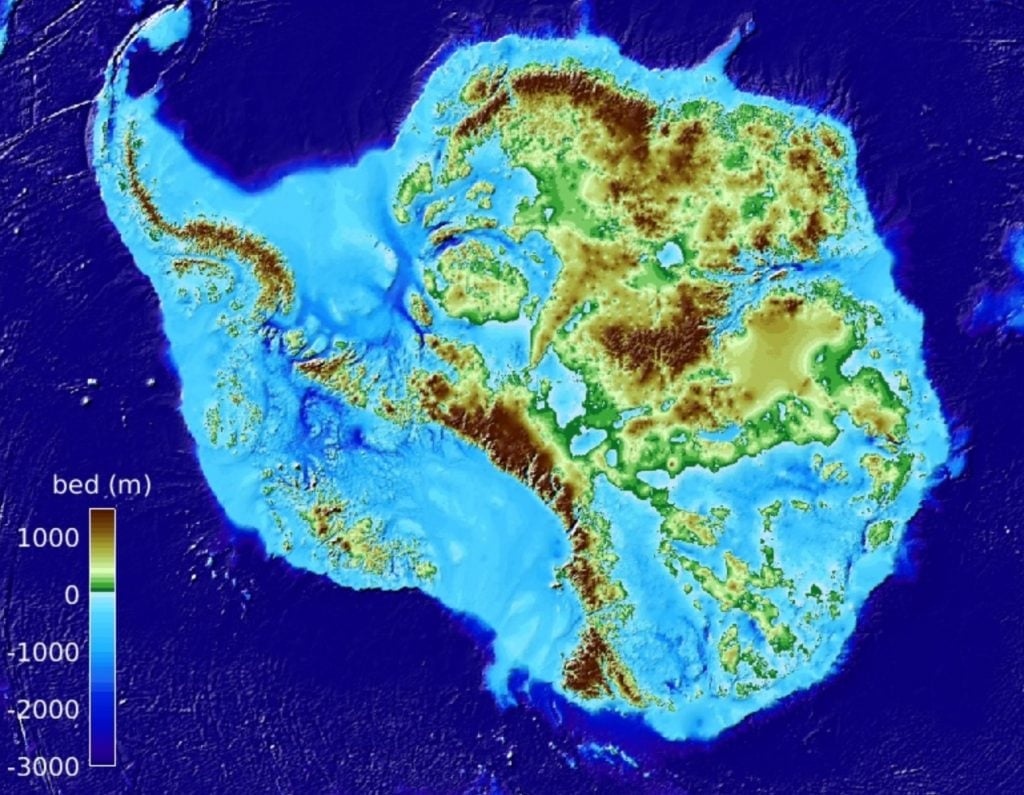The deepest point on land has been found under the Denman Glacier, in East Antarctica.
The canyon has a depth of 3.5km (11,500ft) below sea level.

Mount Everest is the world’s highest mountain and thus point on Earth. But it is also a peak full of junk, carnage and death. But where is the deepest point on Earth? Under the ice of Antarctica.
Where is the Deepest Point on Earth?
The deepest point on exposed land is currently 413m (1,355ft) below sea level at the shore of the Dead Sea. But where is the deepest place on land?
The deepest spot on land is situated below the ice sheet beneath the Denman Glacier, as revealed in this new detailed study of the layers of bedrock under the Antarctica ice.
Although the trenches in the oceans are deeper, this is the deepest canyon on land.
And the released map, based on the law of conservation of mass, is undoubtedly the most accurate portrait yet of what lies beneath Antarctica’s ice sheet.
Is Denman Glacier About to Collapse?
Scientists are now more than sure than this glacier could retreat rapidly due to a mechanism called Marine Ice Sheet Instability.
Glaciers that flow on beds that deepen inland are unstable, and so the glacier will potentially have to retreat all the way until the bed rises again, leading to significant sea-level rise.
This area could become one of the most vulnerable sectors of East Antarctica, which holds significantly more ice than West Antarctica.
But the study also finds that major glaciers flowing through the Transantarctic Mountains and across Victoria Land are found to be protected by broad, stabilizing, topographic ridges near their grounding lines that reflect the surrounding topographic relief.
So this sector of the ice sheet seems extremely resilient to increase in ocean-induced melting. In other words, if the Ross Ice Shelf destabilizes, it should not lead to a collapse of East Antarctica.
But I would like to know if it is also resilient againt volcanic melting. Read more headlines that matters on Strange Sounds and Steve Quayle. [Nature, BedMachine Antarctica, Fox40]













Is the earth’s subterranium temperature influencial on the Denman valley?